Your garden should be kept in prime condition to enhance the enjoyment for you and your loved ones. It serves as an additional space to your home, offering an area for outdoor pursuits like leisure games or tranquil moments observing the sunset.
To ensure the upkeep of your garden, the expertise of a professional gardener is necessary to mow the lawn, prune the plants, and undertake any other tasks to promote its wellbeing. Occasionally, disputes may arise concerning the scope of work, schedule, or costs involved. This is why it is crucial to establish a garden maintenance agreement prior to the initiation of any work.
Table of Contents
What is a Lawn Care Service Contract ?

A Lawn Care Service Contract is a formal written agreement between a lawn care service provider and a client. This document outlines the details of the services to be provided, including the specific tasks to be performed, the frequency of service (weekly, bi-weekly, monthly, etc.), and the total cost or fee for the service.
The contract may also specify the terms of payment, such as whether payment is due at the time of service, monthly, or at another agreed-upon interval. It typically includes terms regarding the responsibilities of both parties, dispute resolution procedures, the duration of the agreement, and conditions for termination or renewal of the contract.
Lawn Care Contract Templates
Simplify your lawn care services and protect your interests with our professional Lawn Care Contract Templates. Whether you are a lawn care provider or a homeowner hiring lawn care services, these templates provide a comprehensive agreement to outline the terms and conditions of the service. With our customizable templates, you can specify the scope of work, payment terms, duration of the contract, and any additional terms such as equipment and materials provided.
Ensure clear communication between parties, establish expectations, and avoid misunderstandings with our easy-to-use templates. Whether you need a basic lawn maintenance contract or a more detailed agreement for landscaping services, our templates are designed to meet your needs. Print and customize them according to your specific requirements, saving time and effort in creating contracts from scratch. Streamline your lawn care operations and protect your business or property with our professional Lawn Care Contract Templates.
The Responsibilities and Services of a Professional Lawn Care Provider
A homeowner employs a lawn care professional to maintain and enhance their yard or garden, for which they are compensated. Their primary responsibility is to ensure the lawn is visually pleasing and harmonious with its surroundings. They are obligated to operate strictly within the areas stipulated by the garden maintenance agreement.
Venturing beyond the specified boundaries could lead to forfeiture of any additional compensation claims. The homeowner may have separate plans for those areas, and such an intrusion could jeopardize the trust between the care provider and the homeowner. A lawn care professional’s potential tasks may include, but are not limited to, the following:
- Raking leaves
- Mowing the lawn
- Pruning overgrown branches
- Applying fertilizer
- Watering the garden or lawn
- Implementing pest control measures
- Weeding the garden, lawn, or pathways
Advantages of a Lawn-Care Contract
Maintaining a beautiful and healthy lawn requires consistent care and attention, which can be challenging for many homeowners. One solution is to hire a professional lawn-care provider to help with regular maintenance and upkeep. But how do you ensure that your lawn gets the care it needs without breaking the bank?
A lawn-care contract can be a great solution. By signing a contract with a lawn-care provider, you can enjoy a range of advantages that can help you save money, ensure consistent service, and maintain a lush, healthy lawn all year round. In this part, we’ll explore some of the key advantages of having a lawn-care contract and how it can benefit your lawn and your budget.
Here are a few potential advantages of having a lawn-care contract:
Regular Maintenance: With a lawn-care contract, you can schedule regular visits from your lawn-care provider to ensure that your lawn is consistently well-maintained. This can help prevent overgrowth, weed growth, and other issues that can make it harder to keep your lawn looking its best.
Cost Savings: Many lawn-care providers offer discounts or other cost savings to customers who sign a contract. By committing to regular service, you may be able to save money in the long run compared to paying for individual services as needed.
Predictable Budgeting: With a lawn-care contract, you’ll know exactly how much you’ll be paying for services each month. This can make it easier to budget for lawn care and ensure that you’re not caught off guard by unexpected costs.
Expert Advice: Many lawn-care providers are experts in their field and can provide valuable advice on how to keep your lawn looking healthy and beautiful. By working with a lawn-care provider on a regular basis, you can tap into this expertise and learn how to better care for your lawn over time.
Peace of Mind: With a lawn-care contract, you can relax knowing that your lawn is in good hands. You won’t have to worry about finding a new provider each time you need lawn care, or about whether your lawn is getting the attention it needs to thrive.
Is Licensing Necessary for Lawn Care Providers?
Lawn care providers are responsible for maintaining the aesthetic appeal and functionality of outdoor spaces, such as lawns and gardens. While some lawn care providers are licensed, others are not. The question of whether licensing is necessary for lawn care providers has been a topic of debate among professionals and consumers alike.
Proponents of licensing argue that it ensures that lawn care providers have the necessary qualifications, knowledge, and expertise to provide high-quality services. They also argue that it protects consumers from fraudulent and unscrupulous providers who may offer substandard services.
On the other hand, opponents of licensing argue that it can be a barrier to entry for small, independent providers, who may not have the financial resources or time to obtain a license. They also argue that licensing requirements can vary widely between states and municipalities, which can create confusion and bureaucracy.
Ultimately, the decision of whether or not to license a lawn care provider is up to the individual consumer. However, it is important to carefully evaluate a provider’s qualifications, reputation, and experience before hiring them to ensure that you receive the best possible service.
The Elements of an Effective Landscaping Contract
A landscaping contract is a legally binding document that outlines the terms and conditions of the landscaping project between the contractor and the client. It is a critical tool that protects both parties and ensures that the project runs smoothly and efficiently. This document should clearly define the scope of work, the timeline for completion, the payment terms, and other critical details. In this part, we will discuss what a comprehensive landscaping contract should include.
Scope of Work:
The scope of work is a crucial element of the landscaping contract. It should define the specific tasks that the contractor is responsible for, such as planting, excavation, hardscaping, irrigation, and maintenance. The scope of work should also specify the materials and equipment that will be used, as well as any subcontractors who will be hired.
Timeline for Completion:
The contract should also specify the expected timeline for completion of the project. It should include the start date, the estimated completion date, and any milestones along the way. This will help both parties stay on track and ensure that the project is completed on time.
Payment Terms:
The contract should include clear payment terms, including the total cost of the project, any deposit requirements, and a payment schedule. It should also specify what happens if the client fails to make a payment or if the contractor fails to meet their obligations.
Change Orders:
The contract should outline the process for making changes to the project. This may include a written request for changes, an estimate of the additional costs, and a timeline for completion of the changes. Change orders should be signed by both parties to ensure that they are legally binding.
Warranties:
Finally, the contract should specify any warranties or guarantees that the contractor offers. This may include guarantees for the quality of materials and workmanship, as well as any warranties for specific components of the project, such as irrigation systems or hardscaping.
What Actions to Take When One Party Fails to Fulfill a Landscaping Contract?
It’s not uncommon for one party to fail to fulfill their obligations under the contract. This can be frustrating and costly for the other party. So, what actions can you take when one party fails to fulfill a landscaping contract?
When a service provider fails to deliver on the services agreed upon in the contract, the client has the right to take action. Firstly, the contract should include provisions for what should be done if one party fails to meet their obligations. The client should carefully review the contract to determine what remedies are available. These provisions could include clauses on the possibility of using a lien, which would allow the service provider to place a claim on the property if the client fails to make payment.
On the other hand, if the client fails to make the payment as agreed upon, the service provider should have non-payment claims in the contract. This clause will outline the steps the service provider can take if the client fails to make payment. It is important to note that before taking any legal action, both parties should try to resolve the issue through mediation or arbitration.
In conclusion, when one party fails to fulfill their obligations under a landscaping contract, there are specific steps that the other party can take to protect themselves. It’s essential to carefully review the contract and understand what provisions are available before taking any action. If the issue cannot be resolved amicably, both parties may need to seek legal advice or arbitration to reach a resolution.
Types of lawn services contracts
There are several types of lawn care contracts that can be used depending on the nature of the service provided and the needs of the client. Here are some of the most common types:
1. Seasonal Contracts: These contracts cover lawn care services for a specific season (e.g., Spring, Summer, Fall, or Winter). The services required might vary based on the season. For example, spring contracts might include soil aeration and fertilization, while fall contracts could include leaf removal.
2. Yearly Contracts: These are comprehensive contracts that cover lawn care services for an entire year. They usually include a wide variety of services including regular mowing, trimming, fertilization, weed control, and seasonal cleanup. They may also include winter services like snow removal, if applicable.
3. One-time Service Contracts: These contracts are used for single, one-off jobs such as an initial cleanup, tree removal, or landscape installation.
4. Monthly Contracts: These contracts cover services that are performed on a monthly basis. They might include mowing and trimming services, as well as regular maintenance like weed control and fertilization.
5. A la Carte Contracts: These contracts allow clients to select and pay for only the specific services they need. For example, a client may only need weed control and fertilization, but not mowing or trimming.
6. Commercial Contracts: These contracts are used for commercial properties like businesses or apartment complexes. They often include a wider range of services and may require more frequent or extensive work.
How to Write a Lawn Care Contract
Here’s a step-by-step guide to help you create one:
Step 1: Identifying the Parties
Start your contract by clearly identifying who is involved in the agreement. This section should include the names and contact information of the lawn care service provider and the client.
Example:
This Lawn Care Services Agreement (the “Agreement”) is entered into as of [Insert Date], by and between [Your Business Name], a [Your State] [Your Business Structure – LLC, Corporation, etc.], with an address at [Your Business Address] (the “Service Provider”), and [Client’s Full Name], with an address at [Client’s Address] (the “Client”).
Step 2: Description of Services
Define the specific lawn care services you will be providing. This could include mowing, trimming, fertilization, weed control, etc. It’s important to be detailed and precise to prevent any misunderstandings.
Example:
The Service Provider agrees to provide lawn care services which include, but are not limited to, the following: Mowing, Edging, Trimming, Weed Control, and Fertilization.
Step 3: Service Schedule
Establish when and how often the services will be performed. This could be on a weekly, bi-weekly, or monthly basis, depending on the nature of the services and the client’s needs.
Example:
The Service Provider agrees to provide the aforementioned services on a bi-weekly basis, beginning on [Start Date] and ending on [End Date], unless otherwise terminated in accordance with this Agreement.
Step 4: Payment Details
Clearly define the payment terms including the amount, payment schedule, acceptable payment methods, and any late payment fees.
Example:
The Client agrees to pay the Service Provider a total fee of [Total Amount] for the Services, payable in [weekly/monthly] installments of [Installment Amount]. Payments are due on the first service day of each [week/month].
Step 5: Termination Clause
Include a section about how either party can terminate the contract. Specify the notice period required for termination.
Example:
Either party may terminate this Agreement with written notice. A [Number of Days] day notice is required for termination.
Step 6: Liability and Insurance
It’s important to outline what happens if someone gets injured or if property gets damaged.
Example:
The Service Provider maintains liability insurance coverage. Neither party shall be responsible for any incidental, consequential, or indirect damages that occur due to this agreement.
Step 7: Dispute Resolution
Specify how any disputes that arise will be handled. Will you use arbitration or go to court? This can help prevent costly legal fees in the future.
Example:
Any disputes relating to this Agreement shall be resolved through mediation or binding arbitration, in accordance with the rules of the American Arbitration Association.
Step 8: Entire Agreement
This clause states that the contract represents the entire agreement between the parties and supersedes all prior discussions or agreements.
Example:
This Agreement constitutes the entire agreement between the parties and supersedes any prior discussions, agreements, or understandings of any kind.
Step 9: Signatures
The contract should be signed and dated by both parties to confirm agreement to the terms.
Example:
IN WITNESS WHEREOF, the parties hereto have executed this Lawn Care Services Agreement as of the date first above written.
[Your Name] [Client’s Name]
[Your Title] [Client’s Title]
FAQs
How long does a lawn care contract typically last?
The duration of a lawn care contract can vary. It may be a one-time contract for a specific project or a recurring contract for a specified period, such as a season or a year. Some contracts may automatically renew unless either party provides notice to terminate.
What factors should I consider when hiring a lawn care service?
When hiring a lawn care service, consider factors such as their reputation, experience, services offered, pricing, insurance coverage, licensing, and customer reviews. It’s also important to discuss and understand the terms of their contract before signing.
Can I customize the terms of a lawn care contract?
Yes, lawn care contracts can be customized to meet the specific needs of both parties. You can negotiate the frequency of service, specific services to be included, pricing, payment terms, and any additional terms you deem necessary.
What happens if I’m not satisfied with the lawn care service?
If you’re not satisfied with the lawn care service provided, review the terms of the contract first. Some contracts may have provisions for addressing service quality issues or allowing for termination with notice. It’s important to communicate your concerns with the service provider to find a resolution.
Can I cancel a lawn care contract before it expires?
The ability to cancel a lawn care contract before it expires depends on the terms agreed upon in the contract. Some contracts may allow for termination with advance notice, while others may have penalties or fees associated with early termination. Review the contract carefully before signing to understand the cancellation terms.
What happens if the lawn care service damages my property?
In the event of property damage caused by the lawn care service, refer to the contract’s provisions regarding liability and insurance. A reputable service provider should have appropriate insurance coverage to address such situations. Contact the service provider to report the damage and work towards a resolution.
How should I handle payments for lawn care services?
Payment terms can vary, but it’s common to pay for lawn care services either on a per-visit basis or through a monthly billing cycle. Some contracts may require a deposit or upfront payment, while others may offer discounts for prepayment. Clarify the payment terms in the contract and keep records of all transactions.






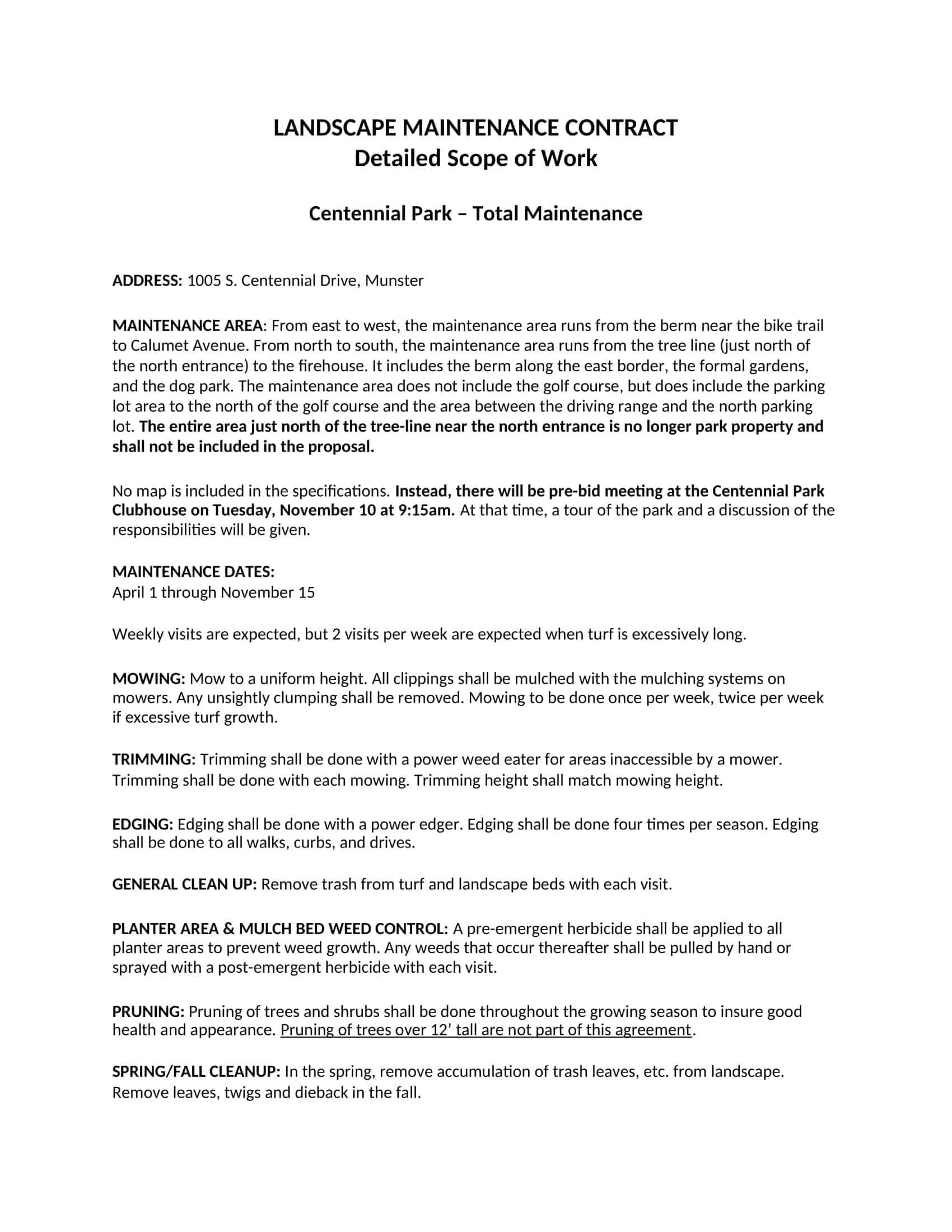




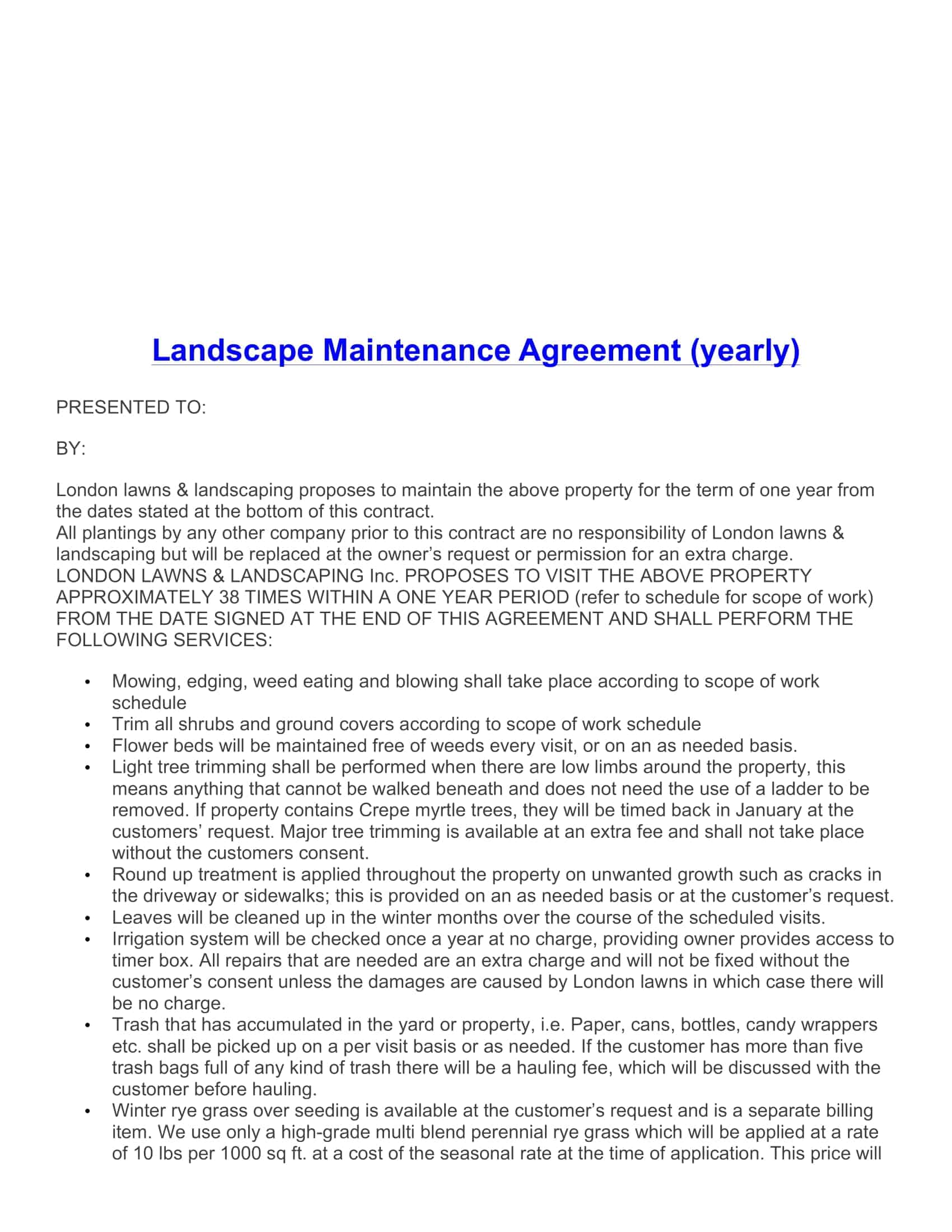

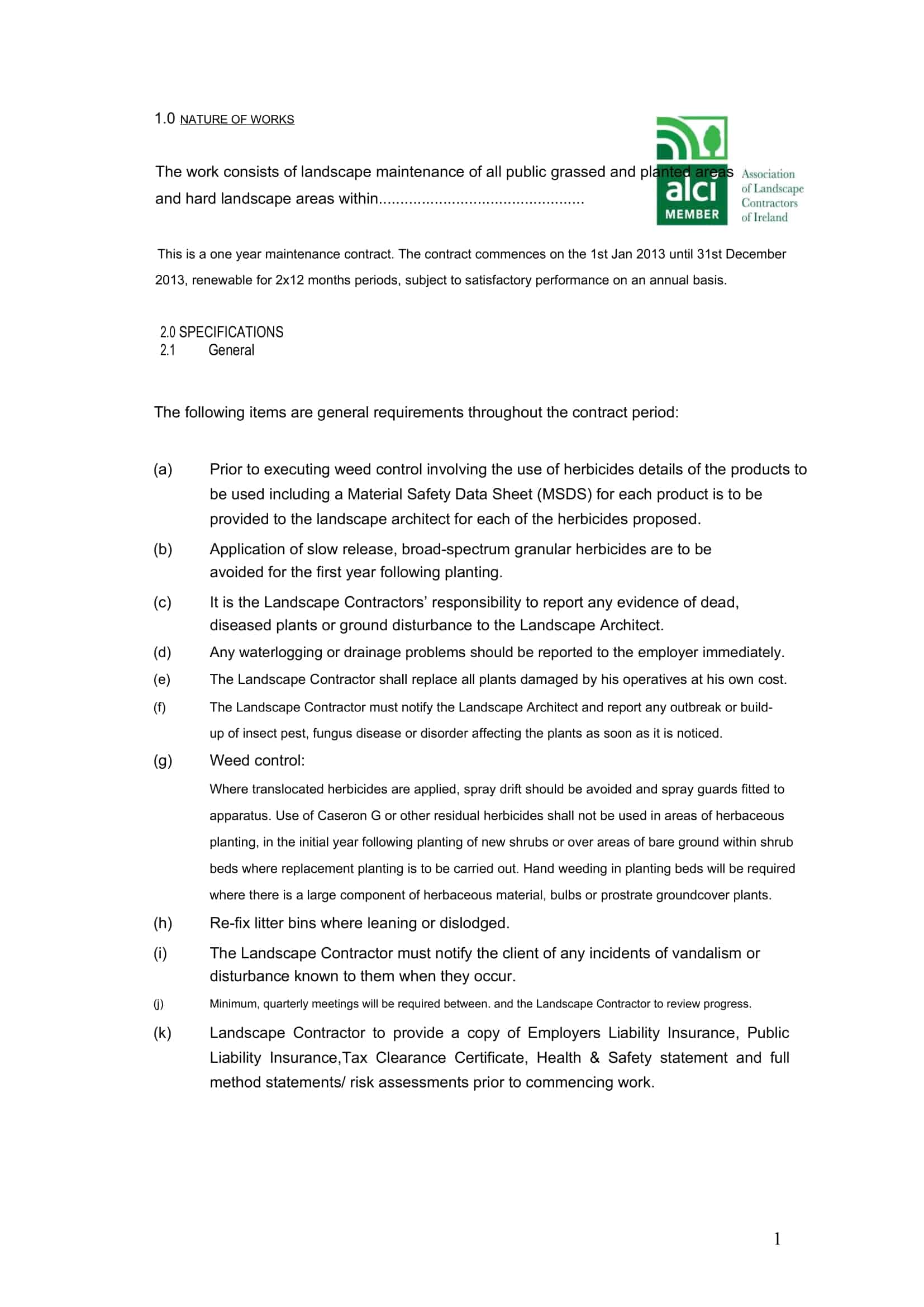





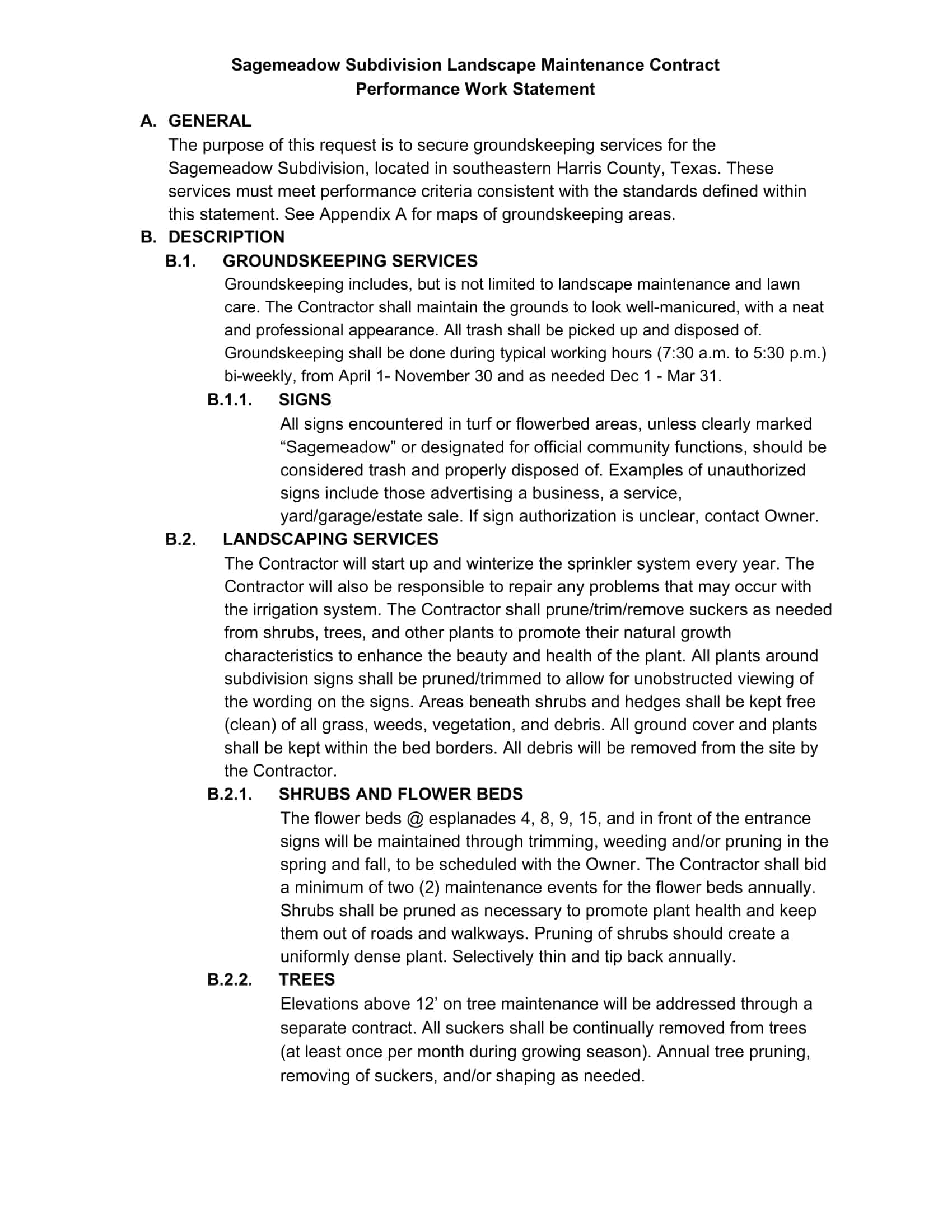


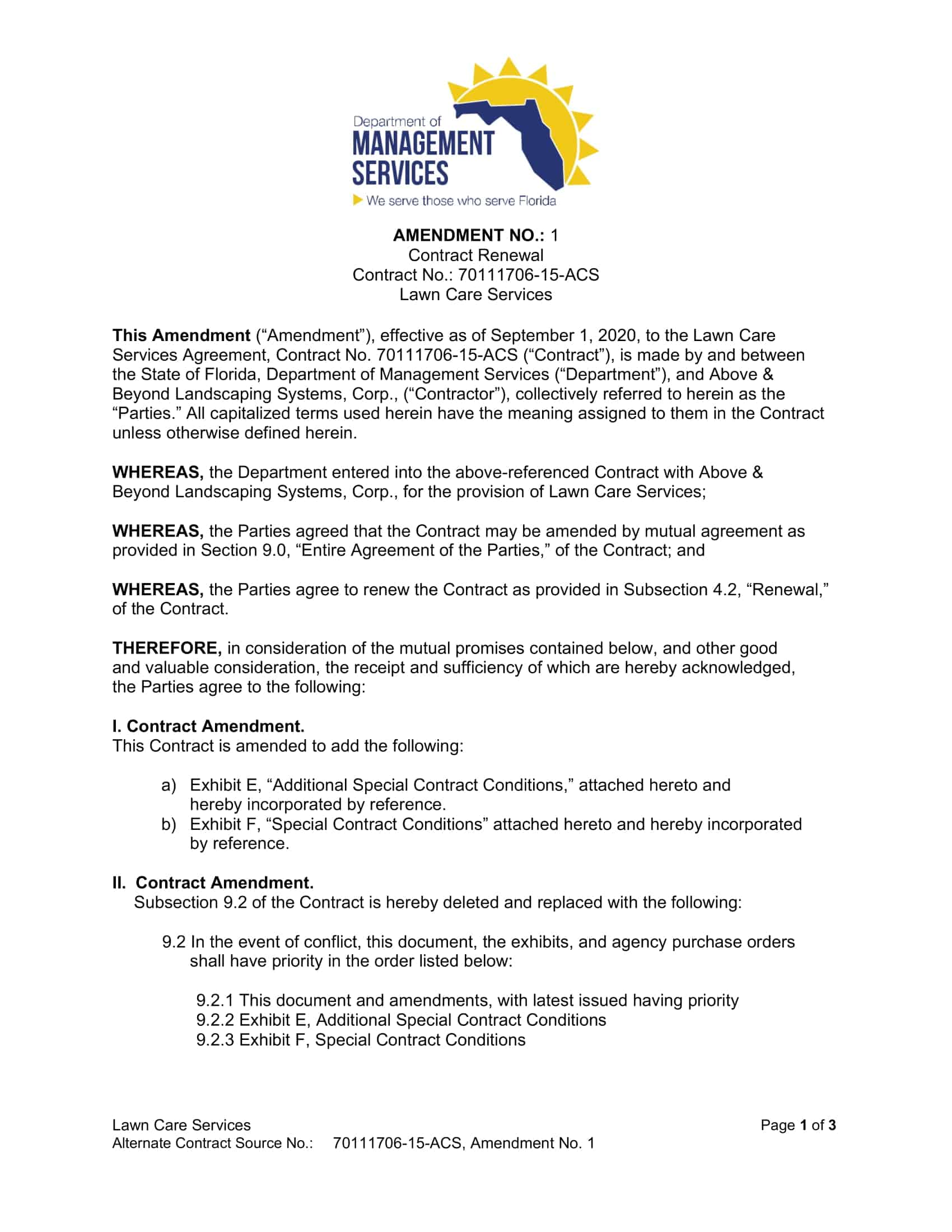
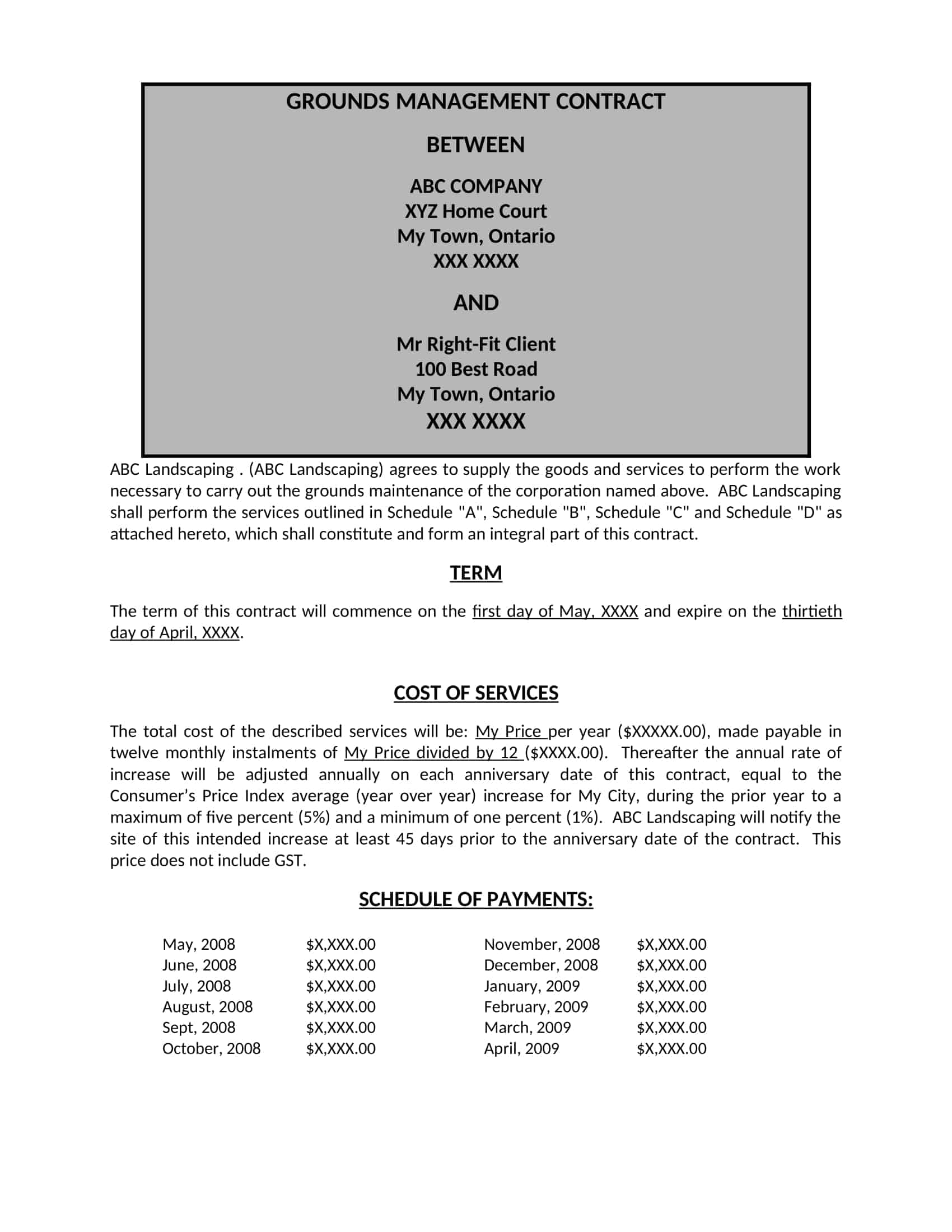






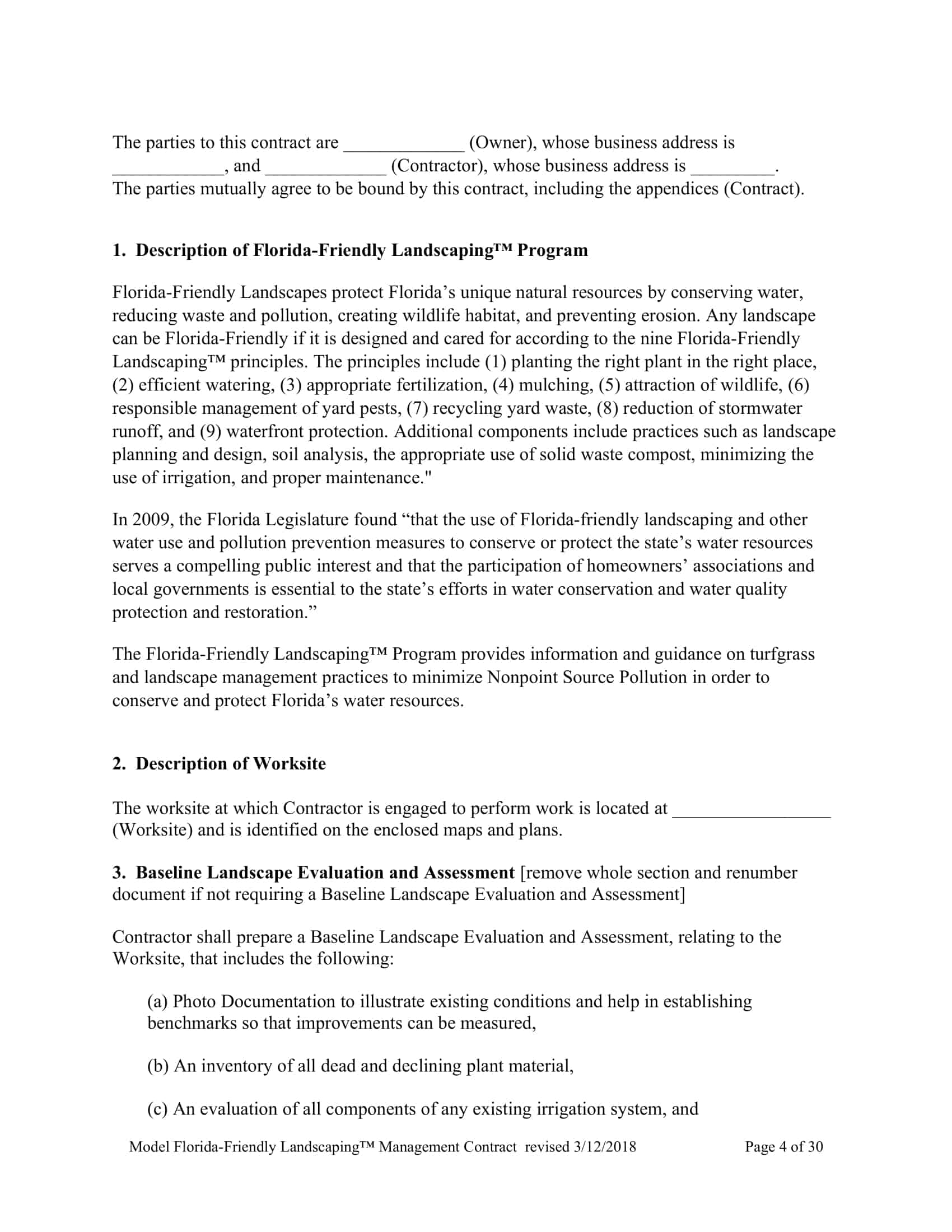
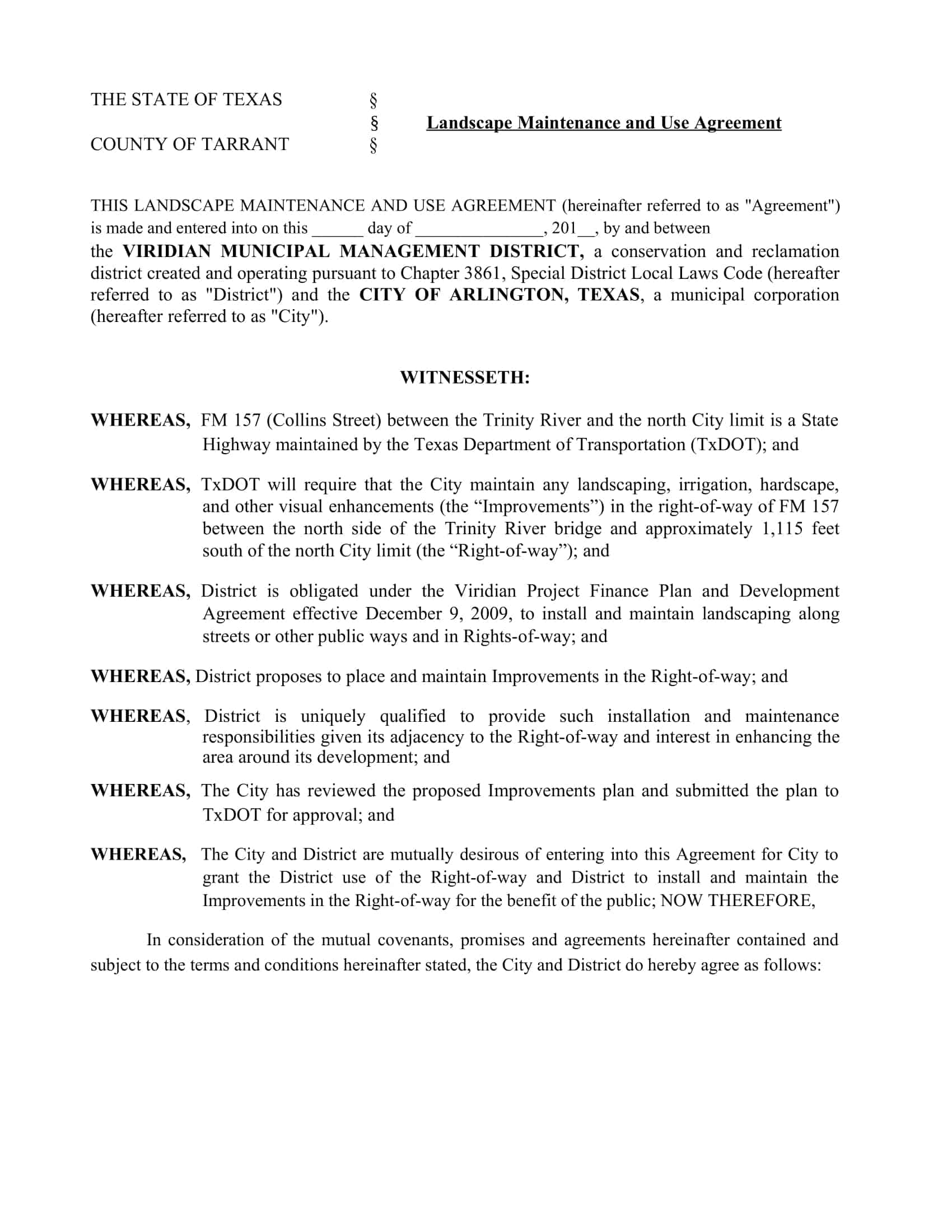

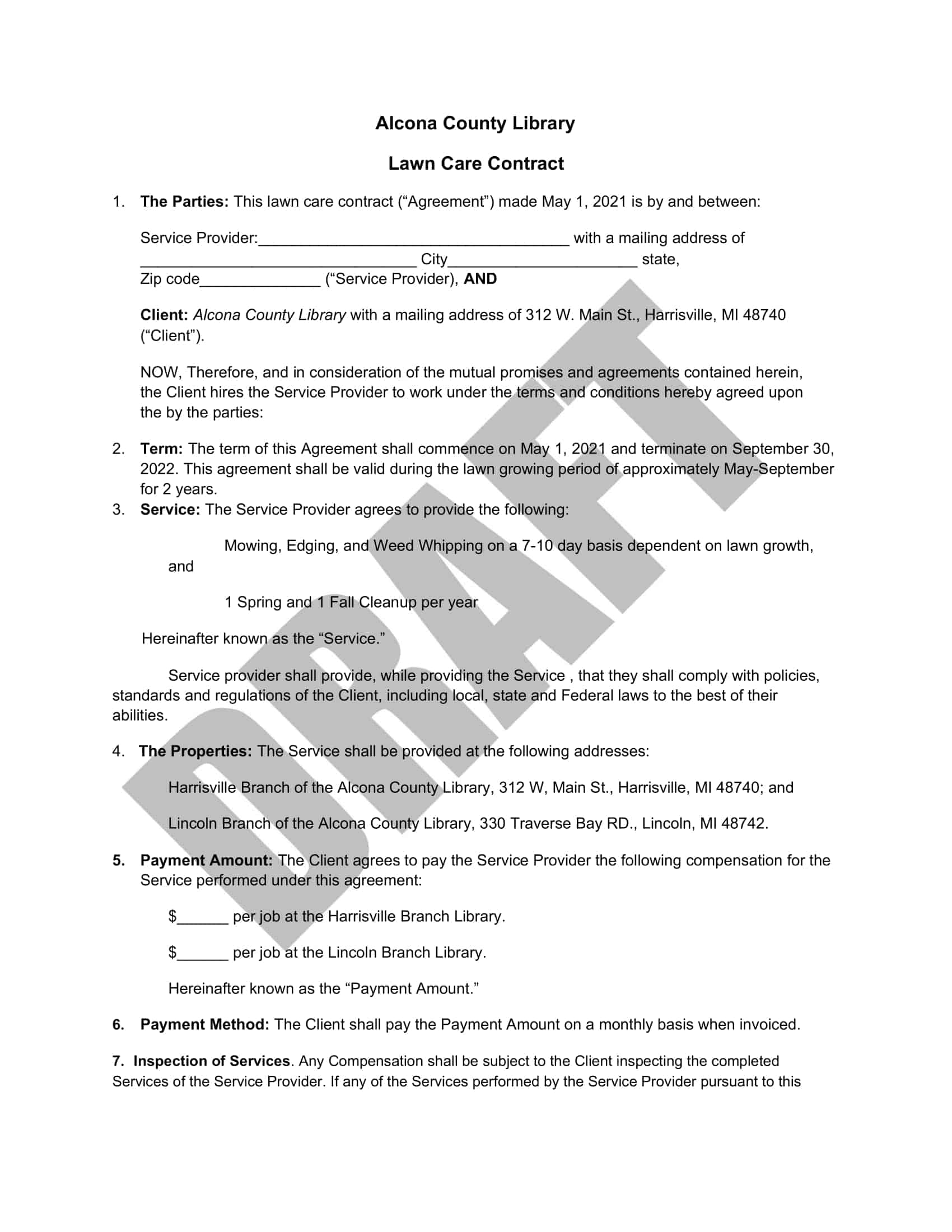


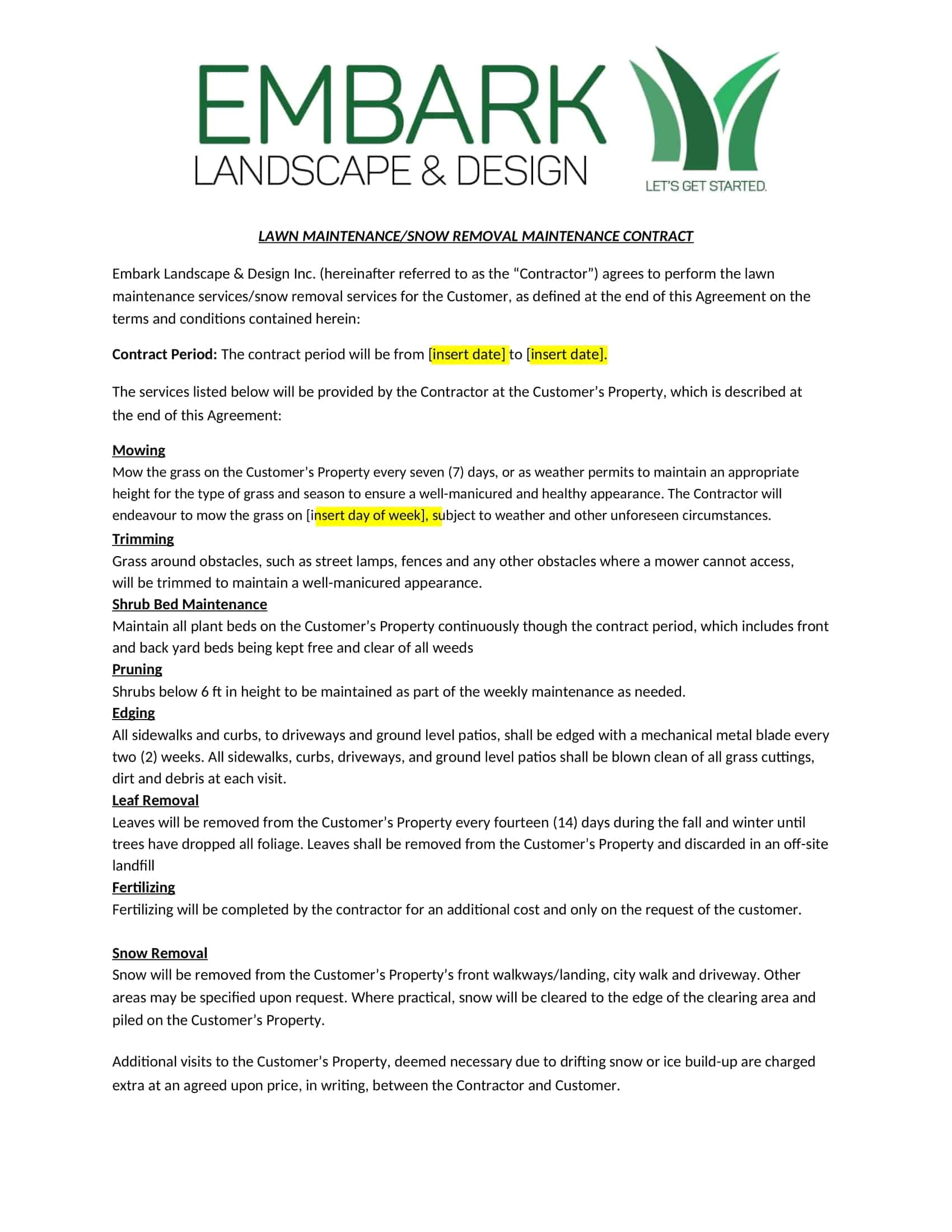

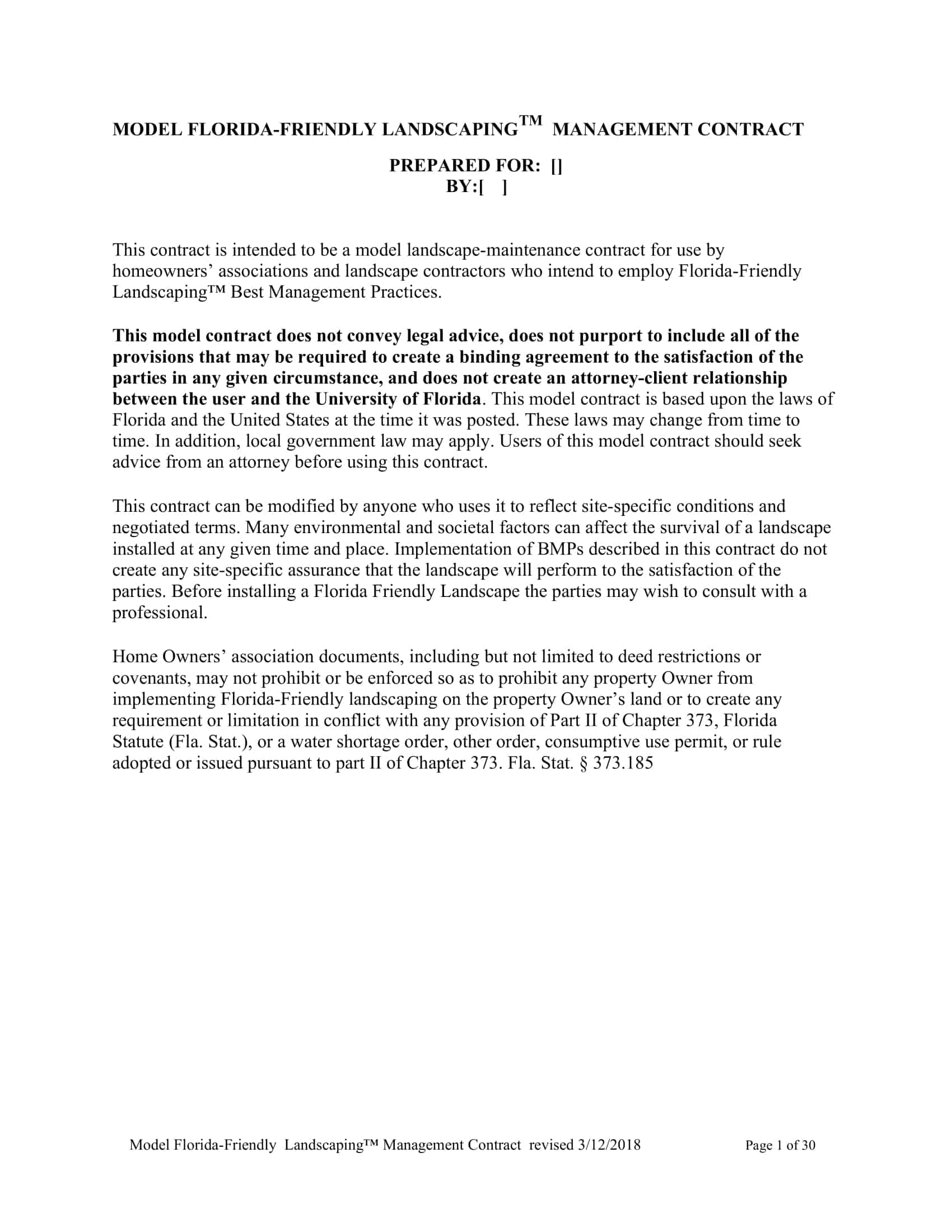

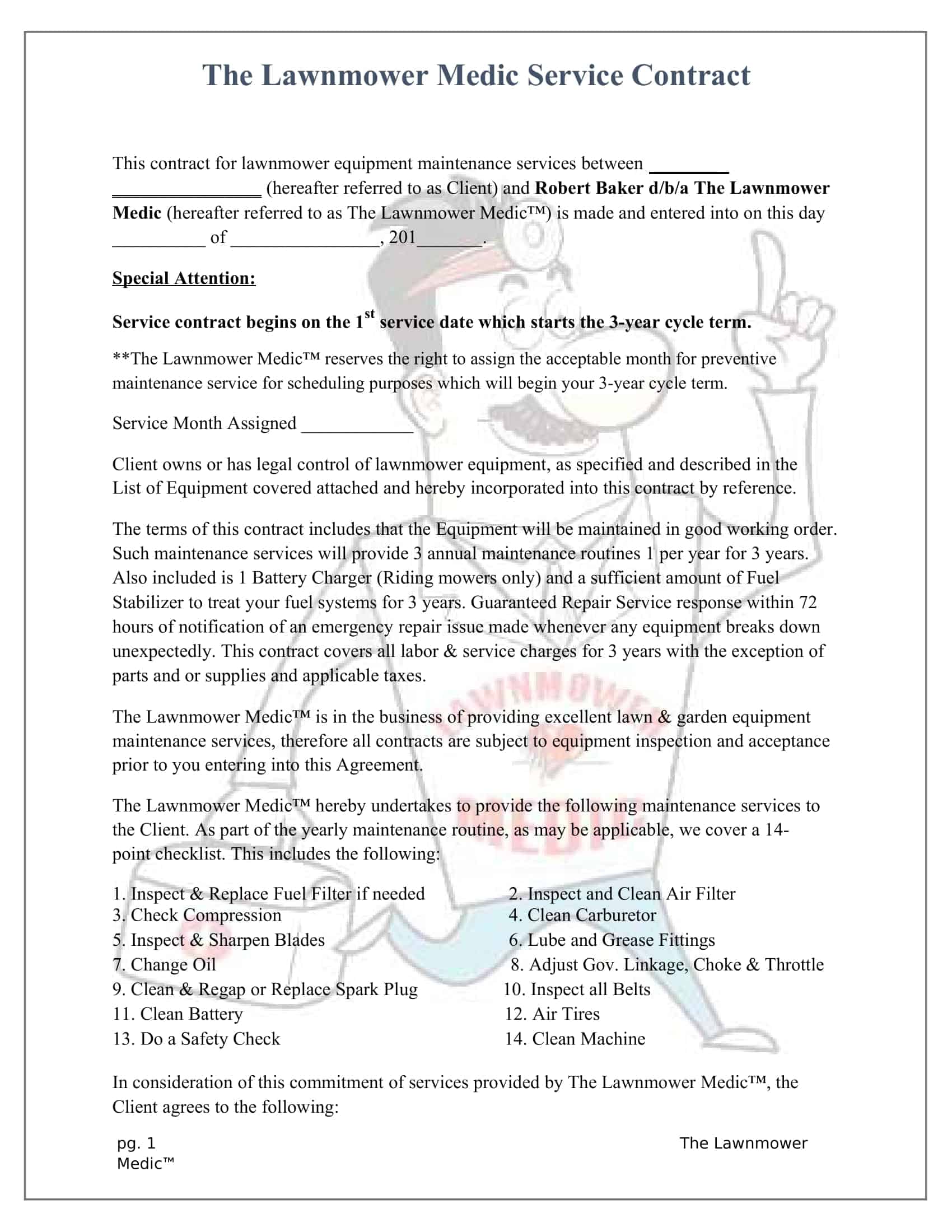



![Free Printable Land Contract Templates [Word, PDF] Simple 1 Land Contract](https://www.typecalendar.com/wp-content/uploads/2023/05/Land-Contract-1-150x150.jpg)
![%100 Free Hoodie Templates [Printable] +PDF 2 Hoodie Template](https://www.typecalendar.com/wp-content/uploads/2023/05/Hoodie-Template-1-150x150.jpg)
![Free Printable Catering Contract Templates [Word, PDF] Simple 3 Catering Contract](https://www.typecalendar.com/wp-content/uploads/2023/05/Catering-Contract-1-150x150.jpg)
